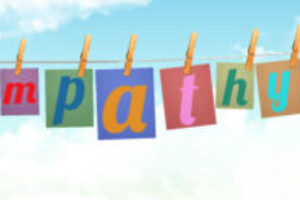I was enjoying Joel Osteen’s live church service when they previewed a movie titled Where Hope Grows. The movie is about a pro baseball player who is forced into retirement and begins a downward spiral. Eventually, this pro baseball player is helped by a young man, David Desanctis, with Down syndrome who works at a local store. After the preview, a comment was made by the writer/producer of the movie that epitomizes what I try to get people to understand all of the time. The comment was, “Down syndrome does not define David, David defines Down syndrome.” Initially, I jumped on that comment with a quickness. I was like, yes, this is a mindset that, we as a nation, must adopt in order for our infants, children, teens, young adults, and adults with disabilities to truly be successful. But, interestingly enough, a day later, I came upon an article on that very topic. And interestingly enough, you will find a small group of people with disabilities who disagree with that comment and actually finds it offensive. To them, their disabilities do define who they are.
You see, to a certain degree, a person’s disability does define them, and I understand that. Down syndrome kids and adults, for the most part, share a distinct facial appearance. Some have to live with severe health issues while others don’t. All have to live with some form of intellectual and developmental problems. Autistic kids and adults share difficulties with social interaction, verbal and nonverbal communication and repetitive behaviors. And, if you have a seizure disorder, well, you have to live with those seizures. So, yes, to a certain degree, I do understand the offensiveness behind the comment. After careful thought though, here is my take on it!
Down syndrome does define David when it comes to certain factors that are inherent in all children and adults with Down syndrome. But, David defines his disability, his outcome. You see, too often we let the disability define the child, and that definition seems to always shine a negative light. We let the disability, statistics, facts, measurements, predictors, commonalities dictate outcome. I can’t begin to count the number of times parents have shared with me doctors who told them what their child would not, could not, and sometimes never would be able to do. The more severe the disability, the more hopeless the outcome. Generally, these well meaning comments are not based on what the child has attempted or not attempted to do; it is simply based upon the child’s disability. The disability has already defined that child’s outcome before that child has even begun to live.
But, what happens when we let that same child define his/her disability. Could the outcome possibly be a little different? Diamond, Camillo, and Kim were predicted to never walk; yet they are walking on their own now. Diana would never talk, yet she developed a vocabulary of ten words and counting. Jesus would never be capable of reading, yet he is reading and spelling now. I could go on, because there are truly a lot more students I could list. As a teacher, I refuse to allow any disability define my students. I want my students to define their disabilities. I try to instill in my parents, and everybody I encounter that same mindset. Don’t let their disabilities dictate their outcomes in life; help them dictate their own. Whether it is David with Down syndrome acting in a movie or Andrea taking steps in her pacer at the age of six despite doctors telling her grandmother that she would probably not live past her first birthday, then her second birthday, then her third! Let’s start giving disabilities a new definition!



